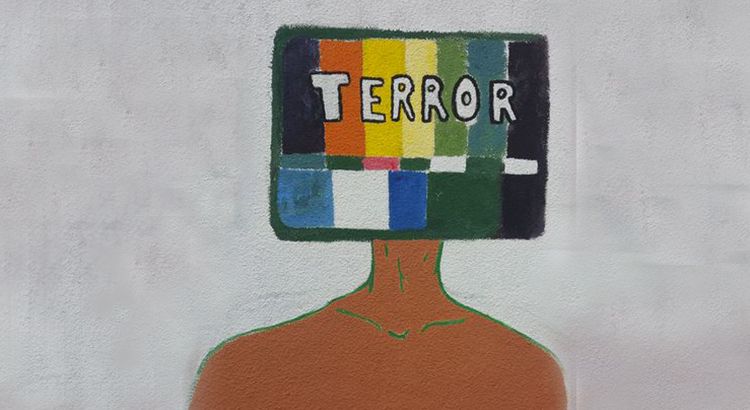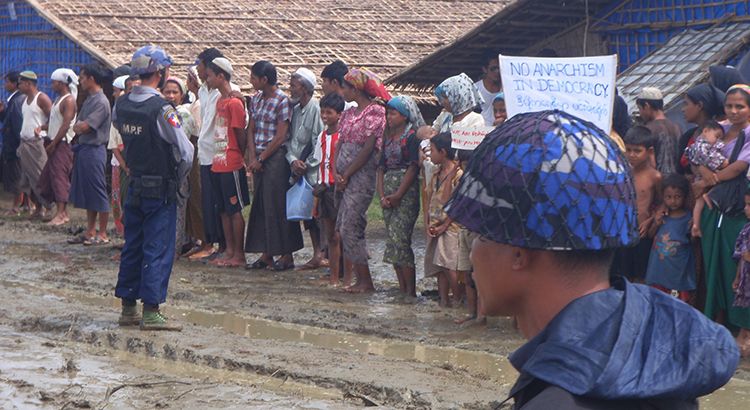Schlagwort: Medien
Der Nahostkonflikt stellt für Deutschland seit jeher eine besondere Herausforderung dar – nicht nur weil er mit geschichts- und migrationspolitischen Themen verknüpft wird, sondern auch weil er den Alltag vieler in Deutschland lebender Menschen berührt. Die jüngste Eskalation des Konflikts lässt tiefgreifende gesellschaftliche Bruchlinien sichtbar werden und fordert innergesellschaftlichen Zusammenhalt in mehrfacher Hinsicht heraus. Gleichzeitig kann der Konflikt jedoch auch als Chance für ihn fungieren. Wie sich der Nahostkonflikt künftig auf den Zusammenhalt in Deutschland niederschlagen wird, hängt maßgeblich vom politischen und gesellschaftlichen Umgang mit ihm sowie vom öffentlichen Diskurs über seine Folgen ab.
Digitaler Faschismus und politische Polarisierung in den USA
In den Vereinigten Staaten weht ein Wind der Gegenaufklärung. Er hat im Sog der rechten Bedrohungsmythen an Fahrt aufgenommen, die im digitalen Kontext boomen und das Verschwörungsdenken kultiviert haben. Dabei geht es nicht mehr nur um die Delegitimierung von politischen Gegnern, sondern um eine Revolte gegen Prinzipien der Aufklärung überhaupt. Sie folgt einer tribalen Logik, die in der Abgrenzung von verhassten Gruppen eine gemeinschaftsbildende Praxis findet. Insofern diese Gruppen für eine politische Kultur der Rationalität stehen, wird der Irrationalismus zum identitätsstiftenden Mittel. Für den demokratischen Diskurs, der auf geteilte Wahrheiten und Verständigung angewiesen ist, hat das weitreichende Konsequenzen.
Who are these “Islamists” everyone talks about?! Why academic struggles over words matter
Politicians, the media, and social media users alike have framed recent attacks in Europe as instances of “Islamist” violence. The current debate often remains superficial and uses the umbrella term of “Islamism” to describe a diverse spectrum of actors, ideologies, and activities. Notably, conflating Salafi jihadism with other manifestations of Islamism risks consolidating a unified enemy image of “the Islamists” – or, even worse, Islam. This blogpost aims at disentangling these labels, in particular pointing out two discursive pitfalls: the securitisation of Islam and Muslim communities, and the equation of Islamism with terrorism.
Hate speech in the context of mass atrocity crimes: How social media platforms help and hinder international criminal investigations
The May 2020 arrest of Félicien Kabuga brought an end to a manhunt spanning 26 years and two continents. The capture of the elusive alleged financier of the infamous RTLM hate speech radio station shows the importance of documenting hate speech for court proceedings if and when fugitives are eventually arrested. Today, extremist hate and atrocity speech in the context of genocide and war crimes takes place and is spread online. However, social media platforms have been slow to respond to and document it, and to cooperate with international authorities in doing so.
Krieg der Bilder – wie das syrische Regime den Bürgerkrieg im Fernsehen weiterführt
Bewaffnete Konflikte werden nicht nur durch Waffengewalt ausgetragen, sondern auch im gesellschaftlichen Diskurs. Diesen zu manipulieren und in die politisch erwünschte Richtung zu lenken, ist das Ziel von Propaganda. Film und Fernsehen spielen dabei eine zentrale Rolle, wie zahlreiche Beispiele aus dem Nationalsozialismus und anderen Kontexten zeigen. Im Gegensatz zu Dokumentationen und Nachrichten dienen Spielfilme und Serien in erster Linie der Unterhaltung. In Diktaturen erfüllen diese jedoch oft auch einen propagandistischen Zweck – starke Bilder, eine interessante Storyline und hochkarätige Schauspieler*innen treffen auf polarisierte Darstellungen eines Gegenstandes. Diese Mischung macht die Filme umso wirkmächtiger, wie ich im Folgenden anhand von einigen syrischen Produktionen zeigen möchte.
Social Media as a Mirror of External Circumstances: Insights into the Perception of a Radical Group
Radicalisation processes take place in a field of tension between the actor and the outside world. External reactions and circumstances can have a supportive but also a rather negative and escalating effect on the dynamics of group development, depending on how they are perceived. Radical groups often react to circumstances in the outside world, incorporate them into their own discourse and provide their followers with a processed interpretation of them. This can be observed particularly well on social media. Within the scope of a thematic content analysis, we analysed how external circumstances were received within the community and what influence they had on the dynamics of the group Millatu Ibrahim.
The Great Divide? The Online-Offline Nexus and Insights from Research on the Far-Right in Germany
Research financed in the framework of the BMBF’s public security programme is still predominantly occupied with two issues: “online-radicalization” and “international terrorism”. The emphasis on „international terrorism“ still leads to an exclusive focus on “Islamist terrorism” and completely ignores the discussion of and a stronger need for research on right-wing terrorism. The emphasis on “online-radicalization” on the other hand misses the importance of also looking at the offline dimension of any phenomena under investigation.
Early Warning? Opportunities and Limitations of Automated Internet Monitoring
Policymakers have invested considerable effort and research funding to understand the role of the Internet in radicalisation processes and attack planning. This includes approaches to identify radicalisation or “weak signals” for terrorist intentions in online behaviour. As a result, security authorities have become increasingly interested in approaches to computer science including Artificial Intelligence. Nevertheless, what results have research efforts thus far yielded? Can computer science prove useful? And what are the possibilities and limitations of automated tools?
Salafist Groups’ Use of Social Media and its Implications for Prevention
Researchers largely agree that radicalisation processes mostly include both real-world and virtual conditions. However, the interaction of both spheres has so far been understudied. Still, too little is known about how the two environments are mutually dependent and, accordingly, even less about how prevention and deradicalisation approaches can cover both spheres. In the previous article, Manjana Sold highlighted that while studying social media profiles, linkages to the real world are observable. This blog argues that this also occurs the other way around: Based on results from in-depth case studies, the article shows how radical Salafist groups in Germany use the benefits of social media to attract new members and facilitate the maintenance of the group. From these findings, possible starting points for prevention and deradicalisation work will be derived, which, if possible, cover both spheres of life.
The Amalgamation of Virtuality and Reality in Radicalisation Processes
Virtuality has long since become an integral part of the world we live in today. It is thus not surprising that the virtual world is also used by those already radicalised and those who are in the midst of a radicalisation process. Accordingly, recent years have seen an increase in research that is particularly interested in the online component of radicalisation processes. Although the majority of researchers agree that there is no pure online radicalisation and that real-world contacts are always an important part of the process, research often continues to be one-sided. This posts calls for a change of focus by considering both spheres as equal components to the process and by examining their interactions. Findings from online case studies stemming from social media profiles of Salafist and right-wing individuals illustrate the amalgamation of online and offline radicalisation.








